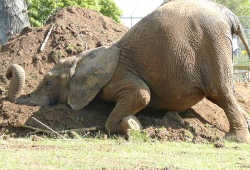George Ridley – 19/11/99
What should be the direction and the emphases in the education system as
we enter the new millennium?
|
|
| George Ridley Photo source George Ridley |
Government policy on education at present is giving heavy emphasis to our
developing a knowledge based economy as the solution to all our problems.
But what use is knowledge if we don’t know how to use it wisely?
Formative influences in my life A background of teaching, including principal of a city high school and
also a rural high school has given me an interest in people and how they
relate to each other. It has also helped to give me an insight into the
things that are needed for a good quality of life. Unfortunately, as happens with many people in responsible positions, there was little time
for reading to find out what other people thought about world trends.
It was only after retirement that I had the opportunity to do extensive
reading, some on religious matters and some on economic systems. I was
expecially interested to follow through the rise of the so-called “New Right” economic agenda and the activities of the group of economists in the
School of Economics in Chicago, who set up the Mt. Pelerin Society in 1947,
to promote a global economic revolution. Henry Korten in his book, When Corporations Rule the World, gives a telling account of the long term disastrous effects of these policies.
My wife, Pat, and I have also been privileged to work in “third World” countries, sometimes at times of crisis – Somalia, Nigeria, India, Uganda.
We found that all round the world ordinary families are not really any different from our own family. They care for each other, they belong to
groups like ours, and they have the same ideas about how they want to live.
They can be envious of what they see in the “western world”, but in spite
of our privileged position they still accepted us as friends.
The trouble in many of these countries seems to be with those in authority.
For example in Uganda a poorly paid or unpaid army at the time preyed on
the populace. There is often poor distribution of what limited resources
they have. These experiences have given us a picture of what the wider
world is like and what sorts of groups are causing trouble and why.
So what changes are need to allow the ordinary people in the less fortunate
countries to have access to a share of of the earth’s resources and a reasonable quality of life?
Desirable changes in education
Increasing pupils’ awareness of the fragility of life on planet Earth Few citizens have an appreciation of the fragility of life on planet Earth.
Changes in education should above all be directed towards addressing that
concern.
Every child should grow up knowing that the air is a part of our planet and
that it is fragile and we are more fragile.
Our job is to infuse into all education, all news, all discussions of the
environment and all plans for future development a live consciousness of
how our part in world ecology has changed. We took a small part until two
centuries ago. At that time we began the destructive and consuming course
to the present day.
From time immemorial mankind has used tools in the struggle to survive.
However, in the past two hundred years technology has raced ahead exponentially. We now have the power to destroy life on earth, including
ourselves, either suddenly with a nuclear holocaust, or insidiously by chemical poisoning, by practices which change the composition of the atmosphere or by the establishment of monocultures which diminish biodiversity. We have been obsessed with the immediate and personal advantages of each new technology and given minimal attention to long term
risks.
Cooperation as important as competition The success of species in the struggle for survival depends as much on cooperation as on competition and this should be reflected in our educational institutions.
The future is unpredictable so our education system must equip people to
cope with new situations with confidence.
Both scepticism and wonder should be encouraged. In schools the highest
value should be placed on:
- the urge to enquire
- concern for others
- the desire for self respect.
Schools should no longer be places where children are selected and prepared
for the labour market. I believe that the development of satisfactory attitudes to other humans, to the whole ecosystem, and to one’s self, is
more important than the acquisition of skills for competition in the outside world.
Approaches to curriculum changes Environmental education needs to be on a par with other subjects in secondary schools and integrated into programmes at all levels.
I would like to see encouragement of holistic approaches in teaching, such
as themes which could involve English, maths, science, social studies, geography, history, art and music.
Pre-school education Although the brain continues to develop and modify patterns throughout most
of life, at least 50% of the development occurs in the first four years and
another 30% in the next ten years. Most vital pathways and patterns are
set in those early years. The older one gets the harder it is to change
those patterns. It is much more efficient to set up desirable behaviour
patterns as early as possible, rather than to change them later. In spite
of this being common knowledge, no country spends more than 5% of its education budget on early childhood education.
Pre-school education should be available to all. Parent participation should be encouraged and education for parents should be included where
necessary.
Learning patterns In the first few years of life children learn by trial and error and copying – finding out for themselves what works. We never lose that approach, but later we are able to hear, see and read about what others
have found to be successful. However, we still, in general, retain only
those bits of knowledge which we find useful for ourselves.
Teachers as role models Many of the things that teachers are asked to include in the curriculum,
today, are learned from peers and role models. These include attitudes to
such things as smoking, drugs, traffic laws, sexual habits, caring for others, respect for authority, fidelity, simplicity, ethics, racism, and
other discrimination. It is little use trying to teach about these things
if role models, their peers and their families are acting differently.
It is very important that the teacher be a good role model. Teachers for
training should be selected more on their ability to act as good role models than on academic ability.
Changes in structure The present horizontal structure of our schools – especially at intermediate and secondary level – is not conducive to establishing good
standards in these matters. Intermediate schools should be phased out as
they are only satisfactory for pupils from better home backgrounds where
the home influence is paramount. Disadvantaged pupils tend to congregate
together and pick up or reinforce each others’ bad habits. There are no
senior pupils to act as role models and no juniors for whom they can learn
to be responsible.
Secondary school changes Secondary schools should be encouraged to adopt a vertical arrangement of
forms for many activities. Competition between the forms should be the
norm and interschool rivalry should be reduced. A huge range of activities
and classes can be held in these all-age groups giving every child a part
to play.
Tertiary education The move for technical institutions to merge with universities or give their own degrees detracts from their vital role as providing an education
firmly based on practice with only the minimum of theory required. This
type of education is vitally important to support industry and provided
jobs for people whose skills are practical rather than academic.
The trend in universities towards increasing business courses and emphasising financial subjects may appeal to the public as increasing chances of employment, but as a society we need to be able to offer broadly
based education to tertiary students of all ages. I would like to see less
emphasis on academic education.
The future of education The development of our education system in the new millennium is a topic
deserving the serious consideration of all New Zealanders. We need an education system which will heighten pupils’ awareness of environmental
issues. teach them the importance of cooperation, and equip them to cope
with new situations with confidence.





